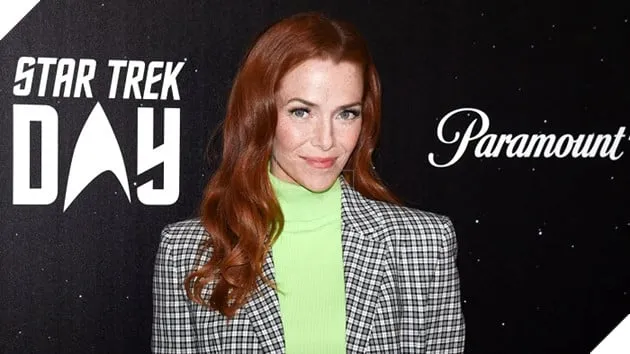Fragile Truce in Middle
Fragile Peace: Trump’s Cease-Fire Between Israel and Iran Tested by Renewed Missile Strikes
A tentative calm swept over the Middle East early Tuesday, as a cease-fire brokered by President Trump went into effect, promising to halt nearly two weeks of deadly conflict between Israel and Iran.
Yet the fragile truce barely held before tension flared again, as reports of new missile attacks threatened to unravel the carefully negotiated pause. Conflicting claims from both sides have left the global community on edge, questioning whether peace can endure—or if the region is teetering on the brink of renewed war.
The Cease-Fire Announcement
The cease-fire, formalized early Tuesday morning, aimed to bring an end to 12 days of intense hostilities, which had left scores dead and many more displaced. Both nations had publicly claimed victory in the conflict, yet the international community welcomed the diplomatic pause as a chance to prevent further escalation. President Trump’s announcement was intended to provide a framework for restraint, urging both parties to maintain the truce and avoid actions that could reignite hostilities.
Renewed Missile Activity
Almost immediately, reports emerged suggesting the cease-fire was under strain. The Israeli military claimed Iran had launched new missile barrages, potentially violating the truce. According to Israeli sources, at least four missiles were fired, setting off sirens and sending millions of citizens scrambling into bomb shelters. A strike in the southern city of Beersheba tragically killed at least four people, adding urgency to the diplomatic crisis.
Iranian state media, however, denied any missile attacks, creating a murky narrative that made it difficult for international observers to determine the full scope of the violence. Israeli authorities claimed to have neutralized missile launchers in western Iran that were allegedly poised to target Israeli territory, asserting that the country remained prepared to respond with force if the truce was breached.
The Dynamics of the Truce
Initially, Israel maintained a cautious silence, adhering to a long-standing practice of observing whether calm from the other side would hold before formally acknowledging the end of hostilities. By mid-morning, both nations publicly confirmed the cease-fire: Israel highlighted that it had achieved its objectives in coordination with Trump, while Iran framed the truce as a demonstration of its military success.
Despite this formal acknowledgment, the early hours of peace proved precarious. Within two hours, sirens sounded again in northern Israel, warning of additional missile launches. Israeli military officials accused Iran of violating the truce, signaling a readiness to respond militarily, and underscoring how fragile the diplomatic arrangement truly was.
Human and Regional Impact

For civilians on the ground, the truce offered little immediate relief. Families huddled in shelters, schools and workplaces shut down, and emergency services were stretched thin responding to both real and potential threats. The psychological toll of constant missile warnings compounded the physical destruction caused during the preceding 12 days of conflict.
Neighboring countries monitored developments closely, concerned that instability between Israel and Iran could have broader regional consequences. Oil markets, already sensitive to Middle East tensions, reacted to the reports of renewed strikes, while diplomatic channels scrambled to verify claims and encourage restraint.
The Trump Factor
President Trump’s involvement as a mediator added an unusual international dimension to the cease-fire. Framing the truce as a personal diplomatic achievement, Trump called on both sides to honor the agreement, emphasizing that the United States remained committed to preventing further escalation. However, the rapid resumption of missile activity raised questions about the limits of external influence in containing deeply rooted hostilities.
Conclusion: A Precarious Peace
The cease-fire between Israel and Iran, brokered under the guidance of President Trump, remains highly tenuous. While both governments publicly portray the agreement as a diplomatic success, renewed missile activity, conflicting reports, and ongoing distrust highlight the fragility of the truce.
For civilians in Israel, Iran, and neighboring countries, the situation underscores a sobering reality: peace can be fleeting in regions where historical grievances, strategic ambitions, and political calculations intersect.
As international observers, diplomats, and military officials monitor the situation, the world watches anxiously, aware that the fragile calm could collapse at any moment, plunging the region back into open conflict.
From 24 to The Last of Us – The Unforgettable Roles of Annie Wersching

Annie Wersching was a gifted actress whose talent, grace, and presence on screen captivated millions. Known for her compelling roles in popular TV series and films, she left an indelible mark on the entertainment industry. From portraying Renee Walker in

Who Was Annie Wersching?
Annie Wersching was born on March 28, 1977, in St. Louis, Missouri. From a young age, she was drawn to the performing arts. After studying musical theater at Millikin University, she launched a career that spanned over two decades. Whether on television, in movies, or in video game voice acting, Annie Wersching consistently delivered powerful and emotionally resonant performances.
Annie Wersching TV Shows: Memorable Performances on the Small Screen
Annie Wersching was best known for her work on television, where she played diverse and impactful roles. Her breakout role came in 2009 when she joined the cast of
Other notable Annie Wersching TV shows
The Vampire Diaries
Wersching played Lily Salvatore, the mysterious and powerful mother of Damon and Stefan Salvatore. Her performance brought new depth and drama to the popular CW series, introducing fans to a compelling villain with a complex backstory.
Timeless
In NBC’s Timeless, Wersching played the role of Emma Whitmore, a brilliant scientist who becomes a central figure in the show’s time-travel plot. Her performance added suspense and intrigue to the storyline.
Star Trek: Picard
One of her final television appearances was in Star Trek: Picard, where she portrayed the Borg Queen. This role allowed her to join the iconic Star Trek universe and showcase her talent in a sci-fi setting.
Other appearances include guest roles in Supernatural, NCIS, Charmed, Bosch, and Runaways, cementing her reputation as a versatile and respected television actress.
Annie Wersching Movies: Impact on the Big Screen
While Annie Wersching was primarily known for her TV roles, she also appeared in a few notable films. Among the Annie Wersching movies that stand out:
Bruce Almighty (2003)
Although a minor role, Wersching appeared in this hit Jim Carrey comedy early in her career, marking one of her first steps into mainstream Hollywood productions.
Below the Beltway (2010)
In this political drama, Wersching played opposite Tate Donovan in a story that explored life in Washington, D.C. This role gave her the opportunity to take on more dramatic material in a cinematic setting.
Wersching’s limited but meaningful film appearances revealed her ability to adapt across mediums and genres, solidifying her as an actress who could thrive in both TV and film.
Voice Acting: A Lasting Legacy in Gaming
One of Annie Wersching’s most beloved roles came in the form of voice acting. She provided the voice and motion capture for Tess in The Last of Us, one of the most acclaimed video games of all time. Her performance as Tess, a tough and resilient smuggler in a post-apocalyptic world, was both emotionally powerful and narratively critical.
The role endeared her to the gaming community and helped expand her fan base to a new generation of fans who appreciated her depth and realism in a video game character.
Personal Life and Legacy
Annie Wersching was married to actor and comedian Stephen Full. Together, they had three sons. Despite her busy career, she was known for being a devoted mother and wife, balancing her personal and professional life with grace.
Tragically, Annie Wersching passed away on January 29, 2023, at the age of 45 after a private battle with cancer. The news of her death shocked fans and colleagues alike, many of whom took to social media to share heartfelt tributes and memories.
Celebrating Annie Wersching’s Life and Career
Annie Wersching may be gone, but her legacy lives on through the unforgettable roles she played across television, film, and video games. Her performances in 24, The Vampire Diaries, and Star Trek: Picard, along with her iconic role as Tess in The Last of Us, ensure that she will be remembered for years to come.
Whether you’re a longtime fan or just discovering her work, revisiting Annie Wersching TV shows and Annie Wersching movies is a great way to appreciate the talent and impact of an actress who brought heart and soul to every role. She was a bright light in the entertainment world, and her contributions continue to inspire.





